Q. You're a fan of other sports, and so you have an understanding of what a home opener is from that perspective. What's a home opener like in the NFL?
A. It is a beautiful thing. The emotions, the energy you get from your home crowd, the energy associated with them as they see you in person for the first time and you playing for them, is truly a special moment. You can compare it to opening day in baseball.
Q. Is it more fun playing at home, or is there a little more anxiety over wanting to do well in front of family and the home crowd?
A. For me personally, it's more fun. I'm sure there are some nerves associated with it for some of the guys who are being exposed to it for the first time as a player or as a coach, but largely it's a feeling of excitement and comfort being in that environment.
Q. When was the last time you spoke to the team about the loss in New England before turning the page to the San Francisco 49ers, and what was the tone of your message?
A. We're not the type of group that buries negative tape. We want to take the emotions out and look at it and look at it critically to minimize the errors we made in that game moving forward and to increase our chances of winning moving forward. So I showed clips from that game as late as Friday, two days ago, in preparation for this game. Friday is the day we focus on situational football and part of being prepared for this opportunity is understanding our situational failures the last time we played. That's general protocol for us. We continue to pore over our most recent video because we realize that's the video the San Francisco 49ers are looking at as well.
Q. How would you describe what the 49ers want to do on offense?
A. They want to bludgeon you. They want to wage a war of attrition along the line of scrimmage and complement that with play-action and misdirection passing. That's how they play football now. That's how they played football under Coach Jim Harbaugh, and not much has changed from that perspective.
Q. Do they utilize Colin Kaepernick in a non-traditional way in terms of typical NFL quarterback play?
A. That misdirection passing game and the way they lean on it, and the way they supplement their running game with some designed read-option-like quarterback runs really highlight his skill-set. But they do more than just that. They have a pretty extensive quarterback-draw game in passing situations. When they drop back to pass, it's not always drop-back plays. He's had some spectacular plays in a design run-like capacity that simulates the passing game – Kaepernick went 90-some yards last year against San Diego, for example, on a play similar to that. He's got a unique skill-set, and they do some things and employ some unique schemes to highlight that.
**
It's picture day! Players and coaches gather to take the team photo.
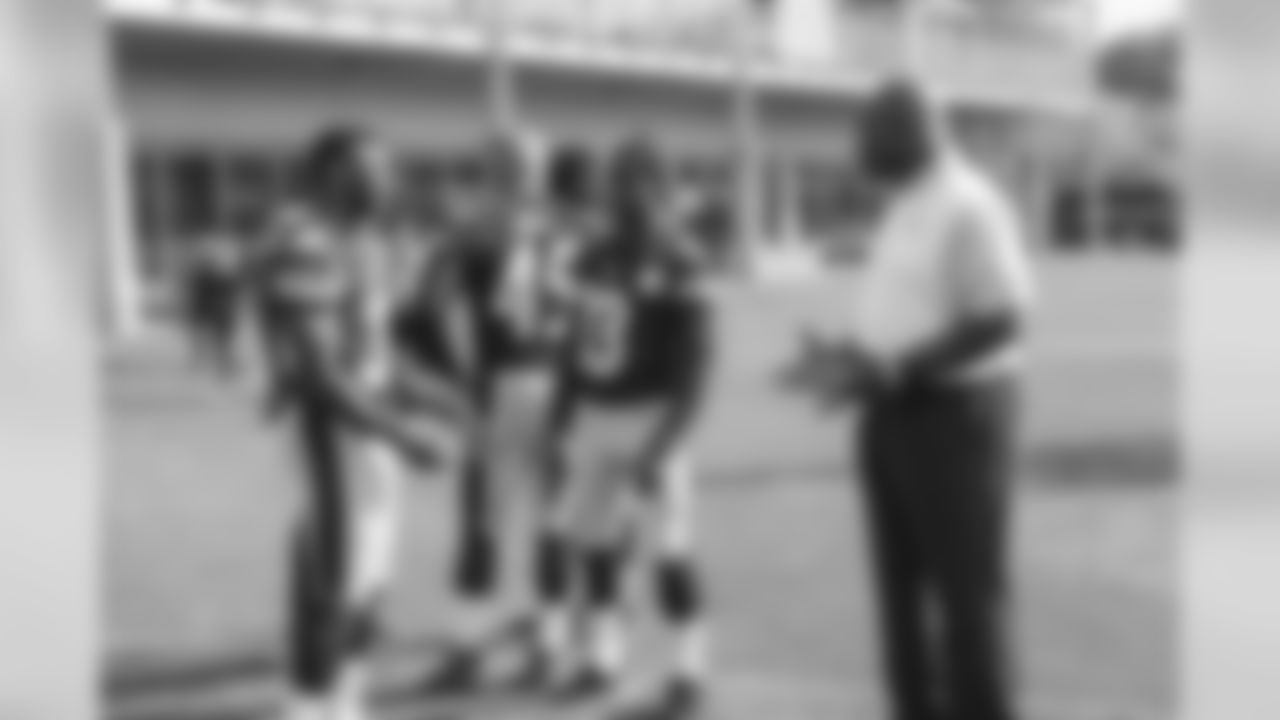




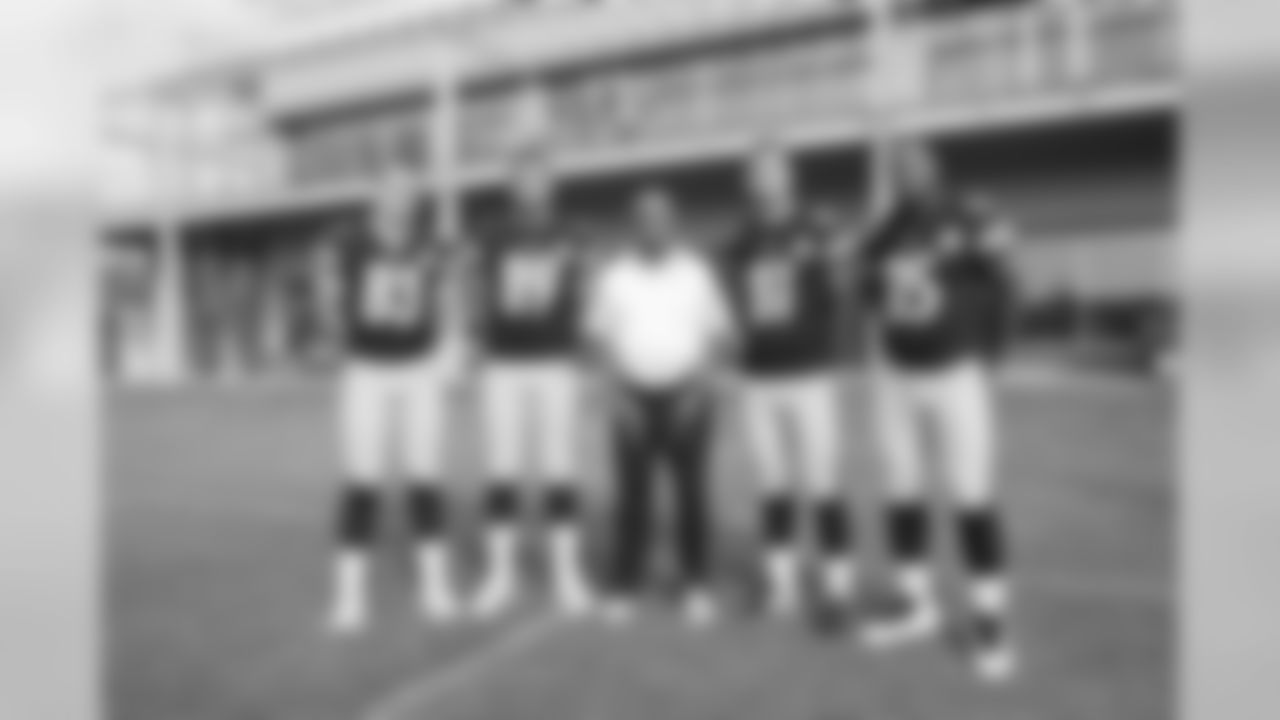





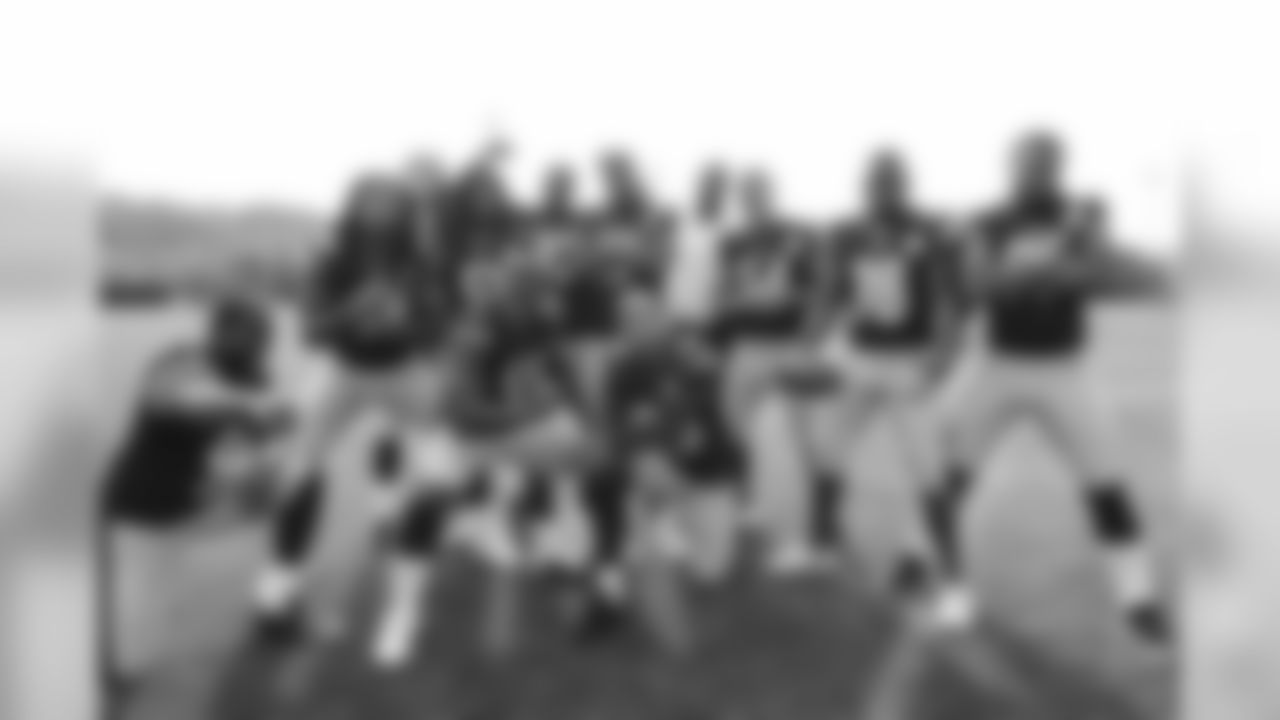

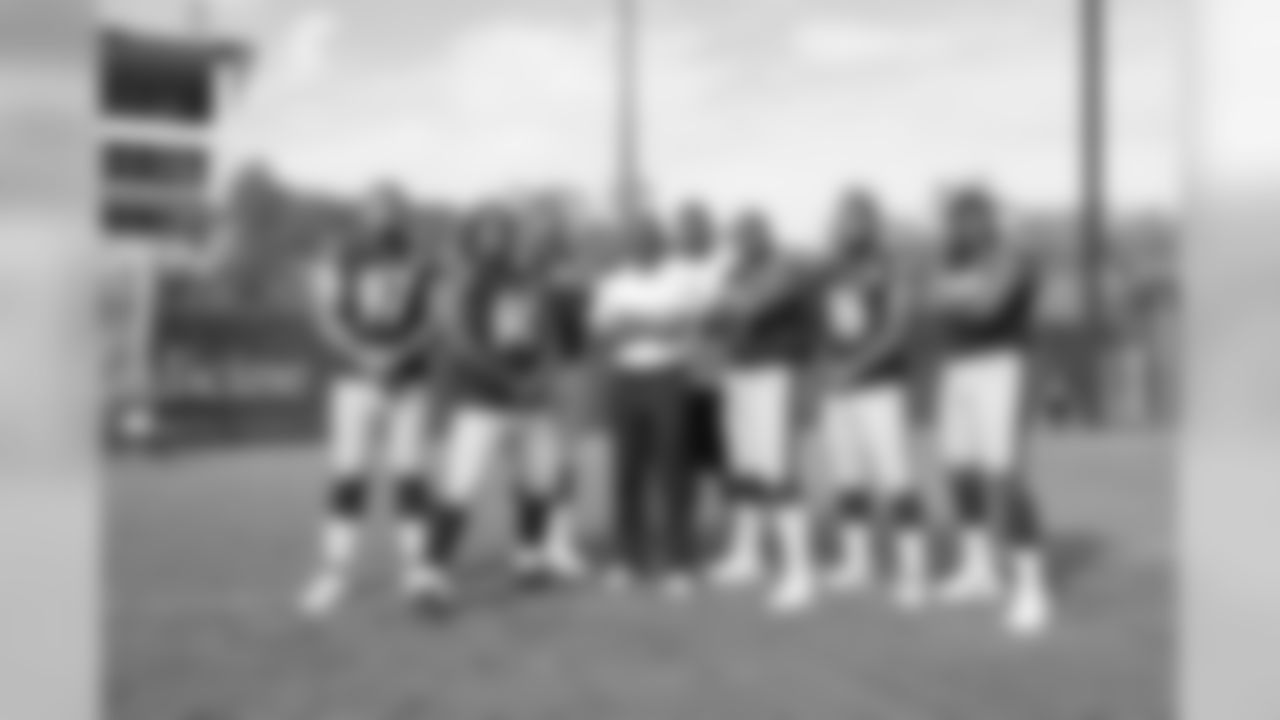
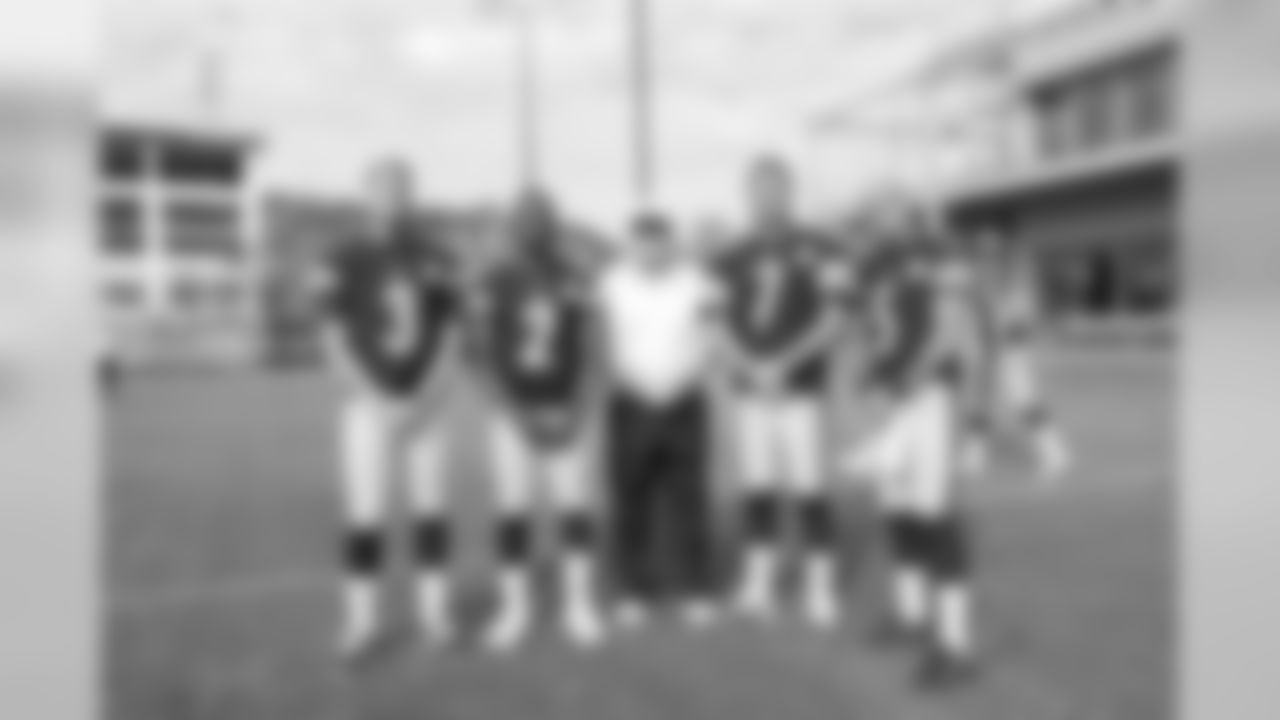


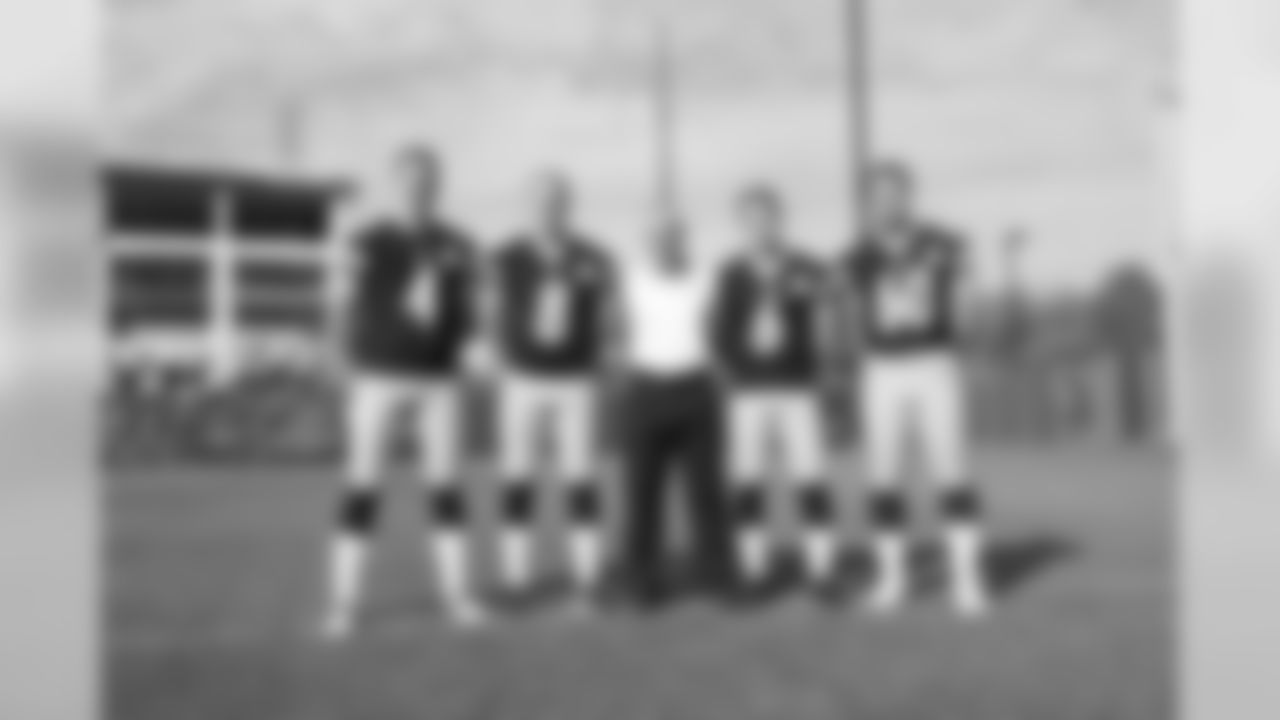






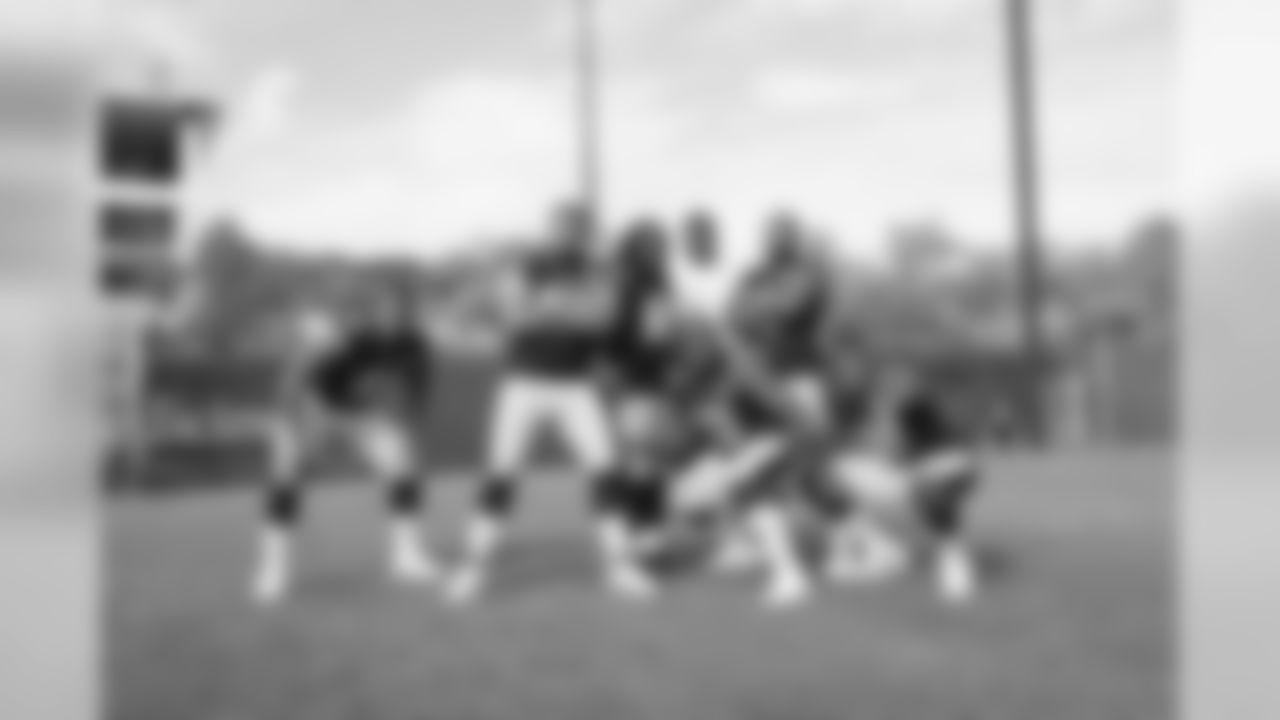

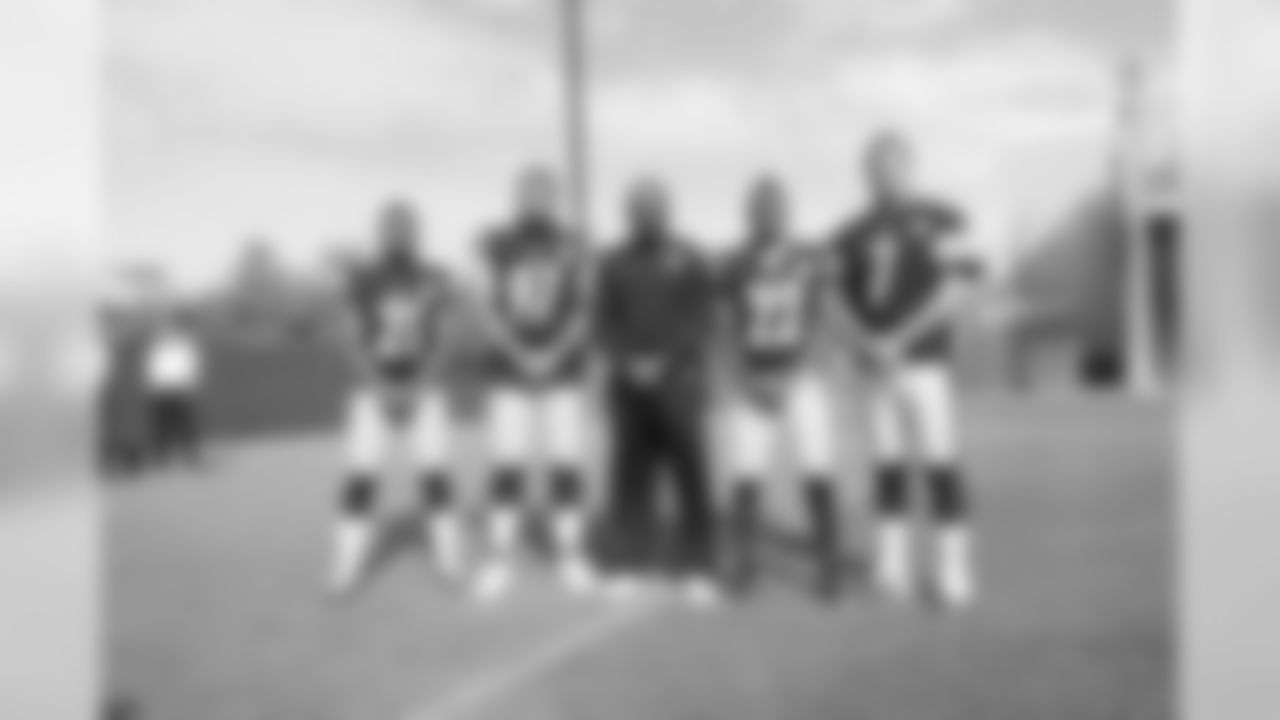
Q. Are there different kinds of mobile quarterbacks, and how would you describe Kaepernick?**
A. There's no question there are different kinds of mobile quarterbacks. There are guys who are runners, guys who have escapability or mobility, and then there are guys who can extend. The guys who extend are never really looking to run, but they have pocket movement associated with buying time and extending plays – that's where Ben is in his career and that's his game at this point. There are guys who are big-time escapable, which means if you give them an opportunity, they're going to take it and do damage to you. And then there are the runners, and those are the guys for whom coaches specifically design opportunities to get them in space, whether it's on the perimeter or down the middle of your defense. It goes beyond the improv associated with broken plays. They actually design plays to highlight that skill-set, and you see some of that with the San Francisco 49ers.
Q. So Kaepernick isn't an extender, but maybe a combination of a pure runner and someone who will take advantage of an opportunity to run?
A. Absolutely. He has the talent to take advantage of escape lanes and create plays in an improv type of way, but it goes way beyond that. They tell you that with their tape, because of the designed runs in passing situations that you see him employ.
Q. Is one of the keys to dealing with Kaepernick to get hits on him?
A. It just depends on how much his running ability is a factor in the game. If it's a factor in the game either by design or his improv ability, then yes, he has to be hit. That's usually what dictates that. For example, we played a game against Robert Griffin III, and he came to Heinz Field in a year when he was really running up and down the field on people, but he didn't do that to us that day. Going in, we anticipated that hitting him was going to be a significant part of the game, but the only time we did hit him was on a trick play when they tried to throw the ball back to him, because other than that he was in the pocket all day.
**
Q. Did you have to spend any extra time either explaining or re-emphasizing the rules as to when a quarterback can be hit as if he's a runner and when he enjoys the protection associated with being a passer?**
A. Not particularly this week, but we spent a lot of time in preparation for the season having those discussions. Partly because of the many quarterbacks we face in the preseason and early in the regular season who have mobility, but also because we took some quarterbacks to training camp who have mobility. I'm talking about Tyler Murphy and Tajh Boyd, who created mobility issues for our defense, and we addressed them then.
Q. Is there any value in talking to players on your team who played in college with players on the opposing team, such as this week asking Ryan Shazier or Doran Grant about Carlos Hyde?
A. Those things invariably happen. Usually it's a little nugget here and a little nugget there. All of these guys are professionals, whether they play for us or other teams, and often when they're communicating with buddies or guys they went to college with it's done in such a tongue-in-cheek manner that you don't know how to take the information. When we run across seemingly good information, we'll take it, but I'm sure people have a similar agenda when they're communicating about our guys.
Q. One of the offensive sets the 49ers use looks like an inverted wishbone, almost like a diamond. What are they trying to accomplish from that formation?
A. They're trying to attack you from both sides. It's a balanced look, one that's unique, but more than anything else it allows them to work both right and left in the running game and in the passing game. Often they don't do it with a fullback and a tight end; often those two bodies up in that inverted wishbone are two tight ends, so they have everything at their disposal that they would have in a normal two-tight end set. It can create some indecision in the defense because they're both in the backfield, but they do the same thing out of that personnel structure than they do if both of those tight ends were on the line of scrimmage.
Q. When a team employs multiple tight ends in the formation to run the ball, is the intention to attack the perimeter of the defense?
A. They do a great job of dominating the C, D, and E-gap areas with big bodies and working to get on the perimeter. They had a lot of success doing that against the Vikings, where a lot of Carlos Hyde's yards came in that C, D, and E-gap areas, because the further you get away from the ball from a defensive perspective the smaller the men get. We're going to do some things defensively to combat that. When we see multiple tight ends together, you're going to see bigger people out there in the D-gap, guys like Cam Heyward and Stephon Tuitt. Hopefully that's going to balance the tide, if you will, in that area of the field.
Q. The 49ers play a 3-4 defense. How is theirs unique?
A. I don't know that it is, but what is unique about them is their sub-package football. When you go to three wide receivers on possession downs, the 49ers are very multiple, they're very exotic. When they're in their 3-4, it's very fundamental and very traditional.
Q. What kind of a game are you expecting here this afternoon?
A. It's going to be rough and tumble. It's going to be rock-em, sock-em robots, but that's what you look for. That's how they're built, and that's how we have a desire to be built. We desire to run the football and stop the run, and last Monday night's game showed they're committed to that as well. That's just an interesting part of the battle, and then, who's going to create the splash plays in the passing game and win situational football? Which defense is going to get off the field in the red zone and force the opposing offense to kick a field goal instead of giving up a touchdown? Who is going to provide splash on special teams – a big punt return, blocking a kick? Those are going to be the things that determine the outcome of the game.






